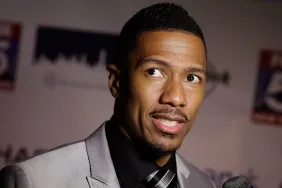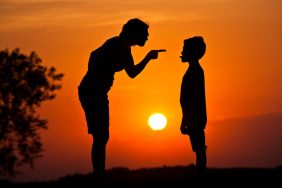Because they do swat at each other, we’ve had to sit down and talk about how we don’t hit, it’s not nice, use your words, and all that. I think they do know better because, knock on wood, they never hit other kids. Also, they’ve gotten less physical as they’ve gotten older, and usually don’t even get that riled up unless they’re overtired, hungry, or both.
What’s interesting though is that the tears only really come when their feelings are hurt. Sure, that swat stings a little, but not nearly as much as the slight from his twin. And inevitably, if the one starts crying, so does the other. As they both sit on my lap, one will tearfully tell me, “I’m mad at my brother. He hurt my feelings. He not my brother anymore,” to which the other replies, “You hurt my feelings. You not my brother anymore.” (No idea where they got this from, by the way.) And then, the crying escalates, and now both have even bigger feelings and it’s like a whole thing and maybe I should cry too. Once the wailing dies down, I tell them that they are always going to be brothers. That you can be frustrated with your brother, and still love him, and he can still be your friend.
The nice thing about kids this age is that they don’t dwell or hold a grudge. Even after all of that crying and disowning, they’re over it five minutes later. Best buddies again. Still, I think those feelings stick with them. I think they remember what it’s like to be hurt, or to have hurt someone that you love. They’re really good about identifying their emotions — mad, frustrated, sad, excited — and I encourage them to talk about them. First of all, because I’m all into talking about my own feelings, and secondly, because I think it helps them to manage all of their big, confusing emotions.
The main reason that I do all of this though is that I want my kids to learn empathy. I want them to understand consequences and see how their actions, both good and bad, can make someone else feel. And it starts with understanding how they feel.
I think that you can teach your children right and wrong, but you can’t really incentivize it. It’s not like you can put a sticker on their rewards chart for sharing with their brother or giving great-grandma a hug. You can’t give them a tattoo for going the whole day without yelling at their brother. I mean, yes, you could reward all of that, and it would probably serve its purpose, but what have they really learned?
Instead, I try to point out how happy it makes his twin when he gives him his turn, and how their Mema loves hugs so much, just like they do. When they hit, or they are hit in return, I talk to them about how sad it feels to be hurt or to do the hurting. See?
Some of my proudest moments are when one of my boys goes to check on his brother, who is having a meltdown/ nursing a wound/ pouting over some injustice. It’s not that I ask him too. He knows his twin is sad and wants to go see if he’s alright. He wants to be there for him. I’ll listen from the other room, one boy trying to console the other, saying things that I’ve said, but in his own tiny 3-year-old voice. Literally, my heart wants to burst out of its chest, I’m so overwhelmed by the love they have for each other. But I’m also so incredibly proud of their kindness. (If it sounds like I’m bragging it’s because I totally, totally am.)
As far as I’m concerned, empathy is one of the most important life skills, one that makes you a better friend, partner, and citizen of the world. Understanding people, accepting people, and putting yourself in their shoes–all of that makes your personal relationships, your work relationships, and your sense of self even stronger. You learn you are part of the world, not the center of the universe. I think for boys, who will ultimately become men, encouraging empathy is even more important.
I know some will argue that you can’t teach empathy, and especially not at this age. Maybe that’s true, but I still think you can talk about what it means to treat people nicely, show them how good it makes others feel, and model it in your own behavior. Little ones start out as sweet, good little people and I think it’s our job as parents to make sure they become sweet, good big people.
Photo: Getty








